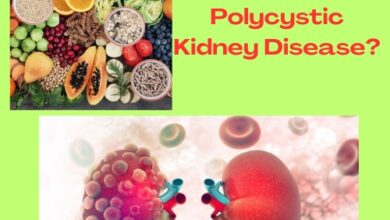One Diet Choice While Pregnant May Protect Your Child’s Heart For Life

The importance of the diet that expectant mothers eat has increased.
A high-fiber diet enhances developing offspring’s long-term heart health and greatly reduces their risk of cardiovascular disease later in life, according to a recent study on pregnant mice.
It is a finding that reinforces the significance of nutritional balance, particularly when producing a whole new person, and is neatly compatible with existing dietary recommendations for expectant mums.
“Dietary fibre is widely recognised for its health advantages and can be found in foods like fruits, vegetables, and whole grains,” explains Francine Marques, a biomedical scientist at Monash University in Australia.
“Our research shows that its impact extends beyond the mother, and can shape the development of her child’s heart.”
Making dietary decisions when pregnant might be challenging. Steer clear of soft cheese. Consume more spinach. Steer clear of lunch meat. Consume yoghurt. Generally speaking, though, the fundamental ideas behind healthy eating remain the same, and this includes a high intake of dietary fibre, which has benefits such as reduced cholesterol and a healthier intestine.
In order to ascertain the potential impact of dietary fibre consumption on foetal development, Marques et al. carried out studies on mice by administering high- and low-fiber diets to groups of pregnant and nursing mice, respectively. After they were weaned, baby mice were given diets with normal amounts of fibre.
After eight baby mice in one group were six weeks old, the researchers sequenced the RNA in the heart tissue. Researchers discovered that hearts on high-fiber diets were more resilient to mild irritations and less susceptible to inflammatory and immunological triggers.
The focus on cardiovascular illness was the next move. In order to cause organ damage from hypertension, six-week-old mice were given the hormone angiotensin. High blood pressure, also known as hypertension, is a good indicator of cardiovascular disease vulnerability.
The hearts of mice bred by mothers on a low-fiber diet were noticeably worse than those of mice raised on a high-fiber diet. These mice’s hearts were significantly bigger, had thicker walls, and had more collagen deposited in them. This suggests that they were more prone to conditions like cardiac fibrosis, which is the formation of scar tissue in the heart, and hypertrophic cardiomyopathy, a condition in which the left ventricle’s walls thicken and lessen the organ’s capacity to pump blood.
The researchers discovered that mums who had a high-fiber diet had 50% higher blood plasma levels of short-chain fatty acids, and that both mothers and kids with this diet had better stomachs and gut microbes.
Short-chain fatty acids are generated in the gut by fibre and pass through the bloodstream to the placenta and foetus, where they influence the action of genes in the growing heart.
The results imply that the importance of a mother’s prenatal nutrition may have been overestimated; nevertheless, more investigation is required to ascertain whether the findings apply to people. Given that a high-fiber diet has been shown to support human gut and microbiome health, it stands to reason that pregnant women might also benefit from it.
“Cardiovascular disease is a leading cause of death worldwide, and this research suggests that a simple dietary change during pregnancy could have lifelong benefits for children,” Marques explains.
“Our work adds to the growing body of evidence highlighting the importance of a healthy diet during pregnancy.”
In order to ensure that they are genuinely feeding for two and that their interests are prioritised, she advises mothers to keep in contact with their healthcare providers.
The findings have been published in Circulation Research.




